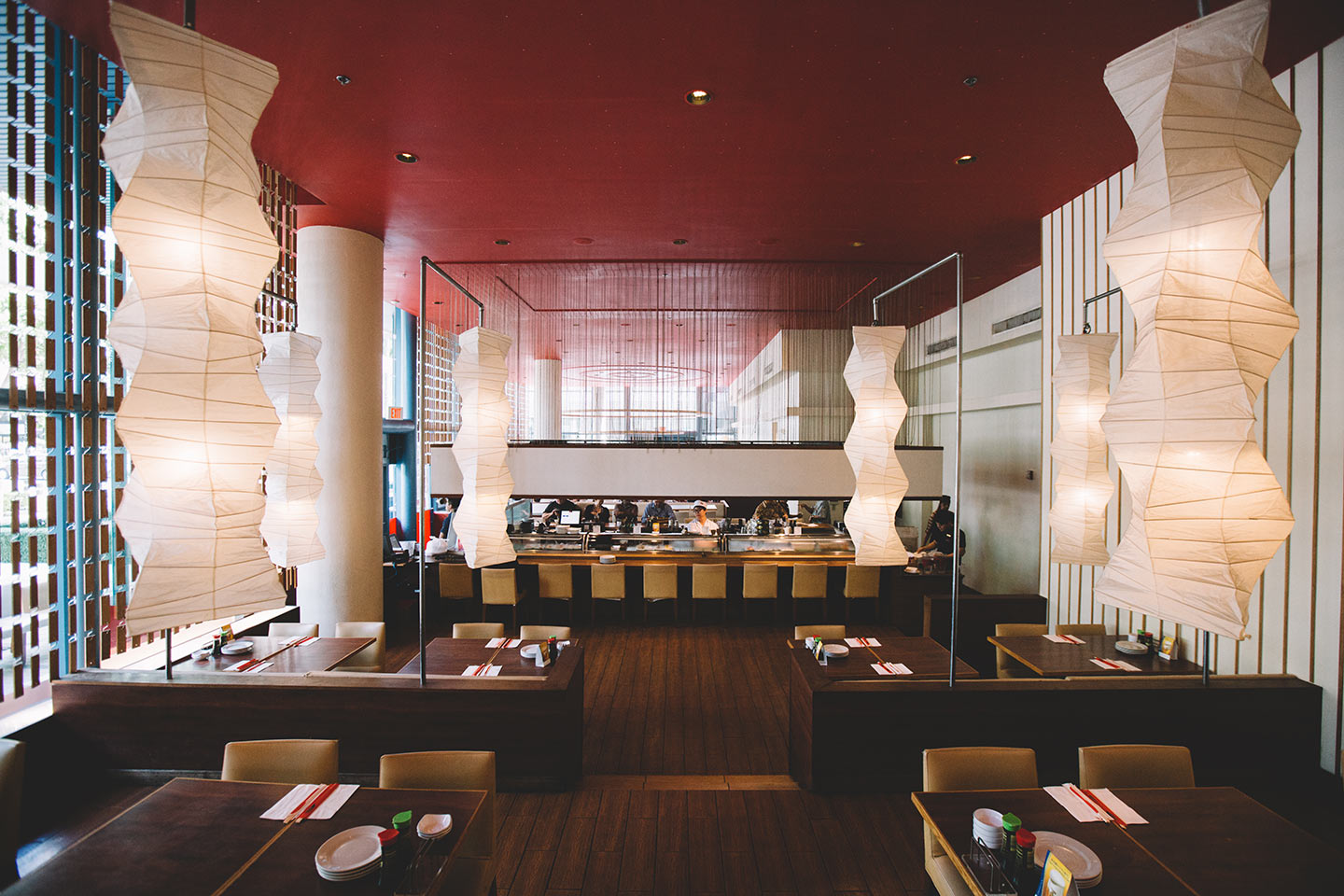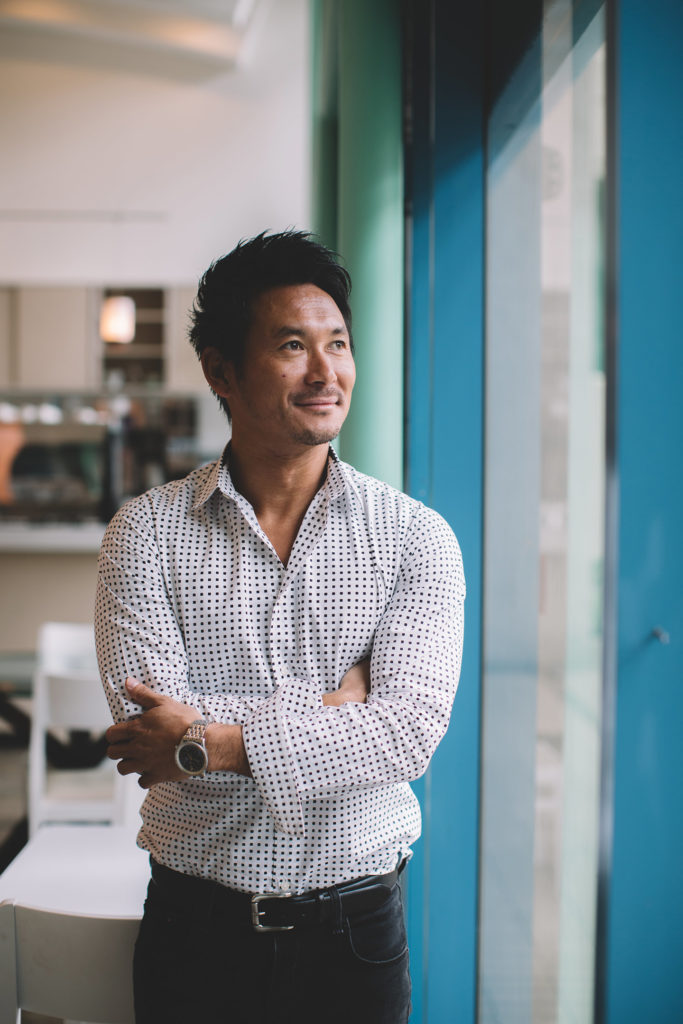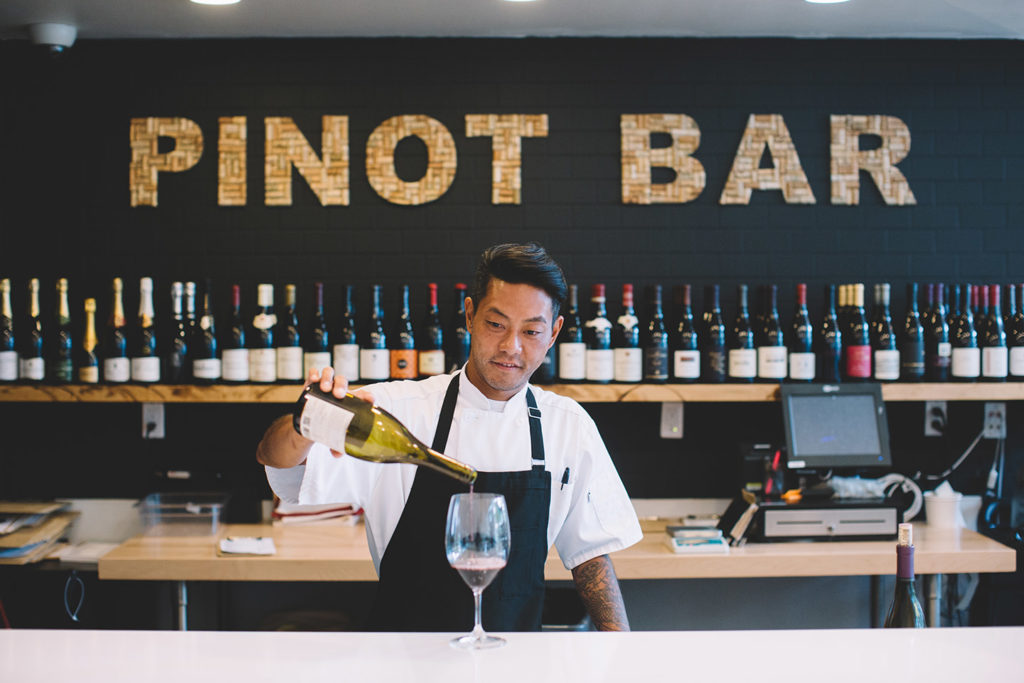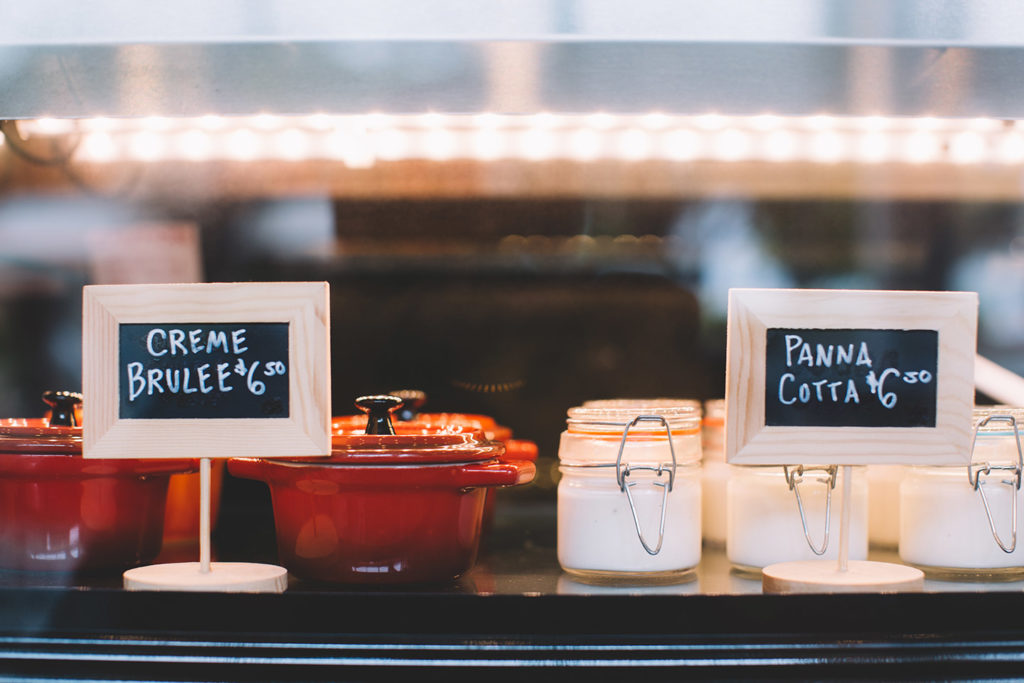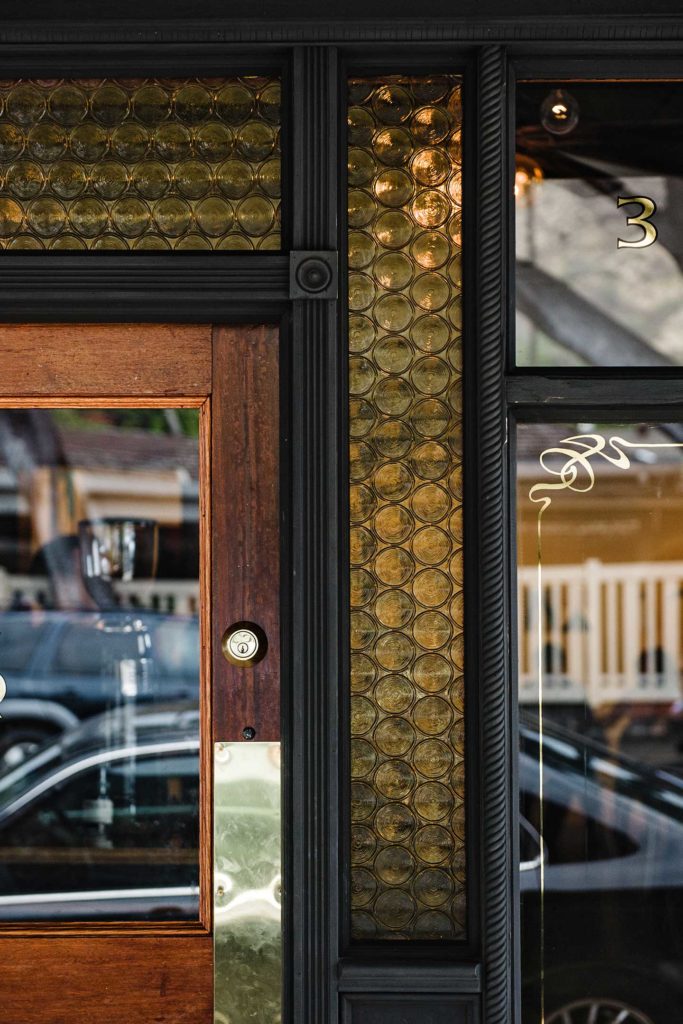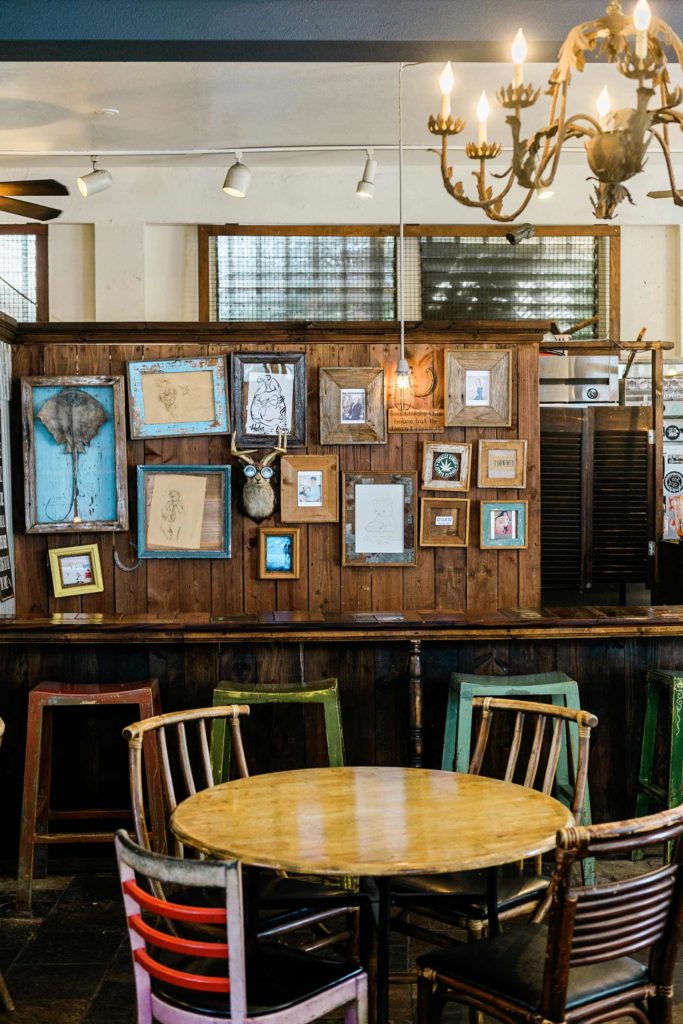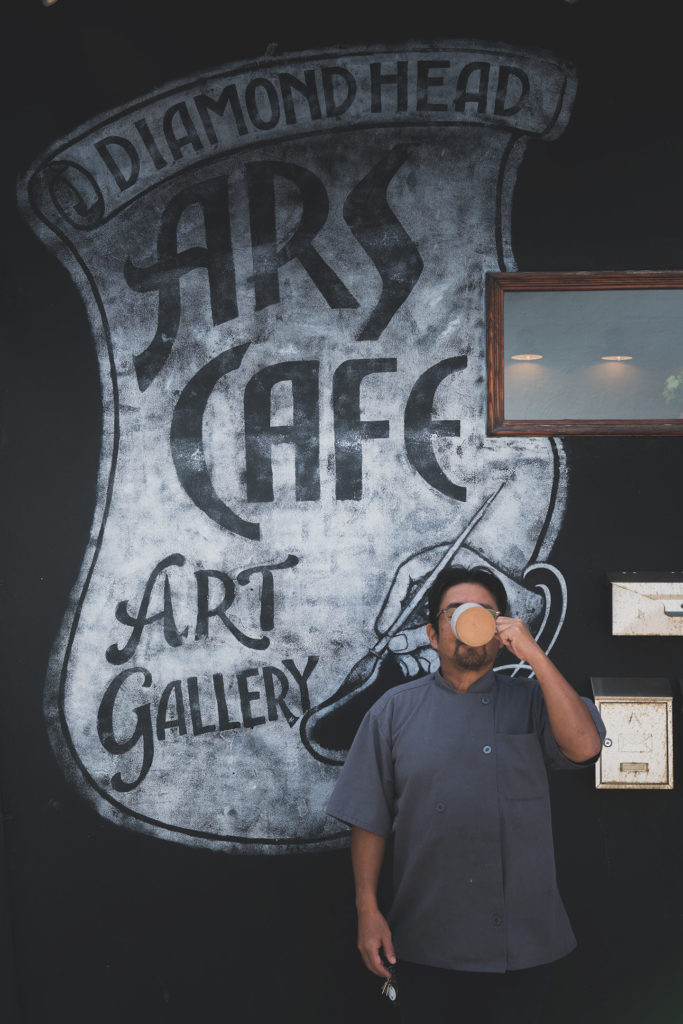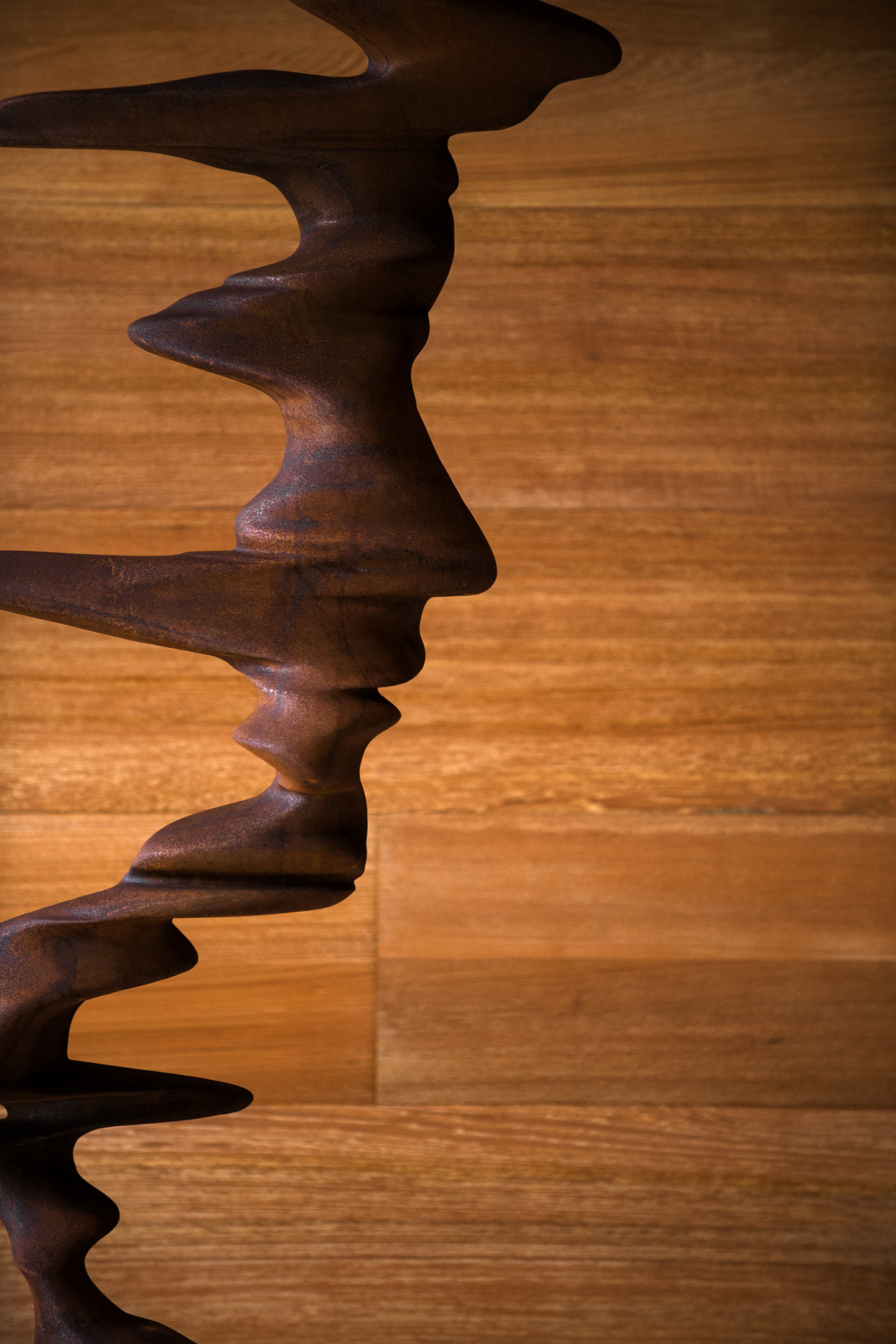Text by Brittany Lyte
Images by John Hook, Jonas Maon, Pete Ulatan, & Gabe Estevez
In the Japanese port city of Yokohama, a festival named after the sweet spot found within a barreling wave attracts more than 70,000 annual spectators. Devised as both a business enterprise and a vehicle for spreading awareness about the declining health of the oceans, Japan’s Greenroom Festival, a two-day celebration of music, art, and surf culture, has become a lucrative and compelling social movement, promoting community beach cleanups alongside live performances by Chaka Khan and other big ticket artists.
In 2011, the 13-year-old festival brand, which also owns six surf-themed art galleries in Japan, expanded its operations to Honolulu. With an eye on advancing into the global market, Greenroom’s investors viewed Hawai‘i as a natural next step. The islands’ geographic proximity, along with its residents’ warm familiarity with Asian culture, and the Japanese people’s longtime love affair with the islands, seemed to offer a synergy that other coastal cities couldn’t match.
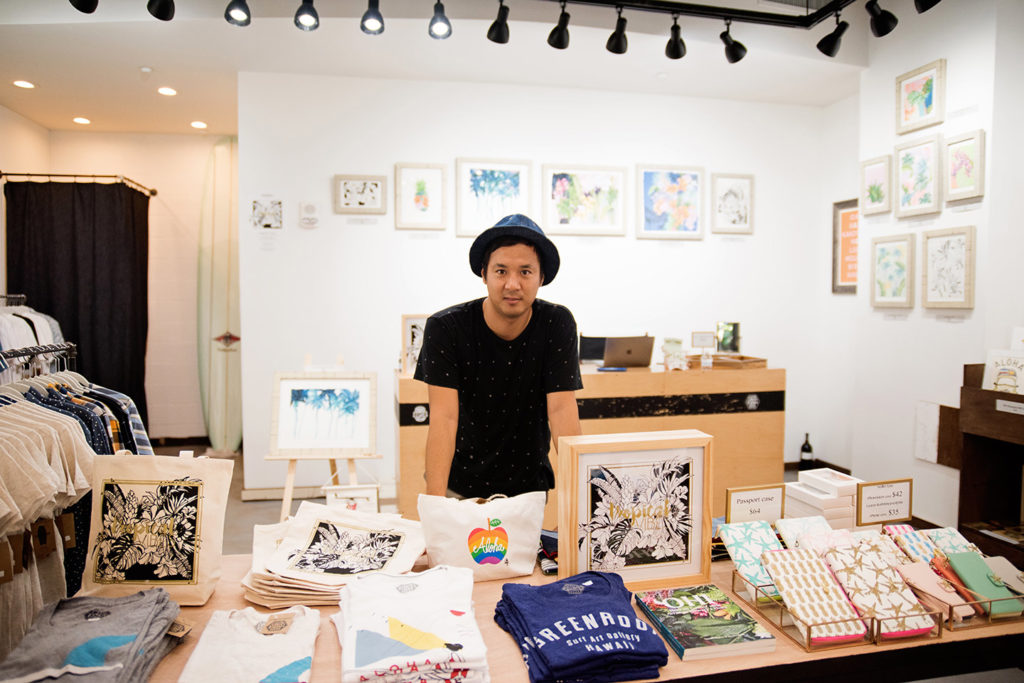
Six years later, the company’s outpost in the Pacific has yet to make a profit. “Rent is expensive, construction is super expensive, materials are expensive, the air conditioning is expensive,” says Greenroom Hawaii CEO Yohei Otani. “You go in knowing it will be expensive, but later, you really learn just how expensive.”
Hawai‘i has a reputation for having one of the nation’s highest costs of conducting business. The island state ranked 41 in Forbes’ 2016 analysis of states with the best business climates, for reasons including onerous regulations, a complicated tax code, and the nation’s highest utility bills and office rents. On the brighter side were Hawai‘i’s labor supply, growth prospects, and economic climate.
Regardless of the challenge, Japanese investors have been funneling money into Hawai‘i for decades, and Honolulu, which is experiencing an urbanization boom, steadily continues to attract new Japanese-owned enterprises. It all begs the question: If Hawai‘i’s economic climate is so daunting, why are these Japanese entrepreneurs so eager to invest?
Greenroom’s pair of surf art galleries, located at the Sheraton Waikiki Hotel and Resort and the newly remodeled International Market Place, are situated in a submarket that receives 5 million yearly tourists. Total visitor spending in Hawai‘i for the month of November 2016 was $1.2 billion.
Over time, as the brand gains recognition and rising revenues continue to pay down early capital investments, Otani expects the company’s profits to reflect this potential. A Hawai‘i-born surfer who spent his formative years in Japan, Otani sees the eco-surf brand’s foray into the Honolulu market as uncertain, but full of promise. He also believes that the brand’s expansion to Honolulu adds value to Greenroom’s business back in Japan, where Hawai‘i is adored.
“Hawai‘i is the holy space of surfing,” says Naoki Kamayachi, the Japan-based owner of the Greenroom brand. “We at Greenroom love and respect surf culture immensely, so it’s a very natural step to start our surf gallery business here in Hawai‘i first.”
Indeed, Hawai‘i’s sentimental appeal is a major draw for these business owners, according to Hide Sakurai, who works as a consultant to Japanese investors seeking to launch new ventures in Hawai‘i.
According to Sakurai, many of Hawai‘i’s Japanese-owned enterprises are passion projects, and those that fail or struggle are often plagued by investors’ lack of understanding about how business is conducted in the islands. Knowing this, Sakurai positions himself as a wake-up call to investors whose dreams of O‘ahu’s sandy beaches sometimes cloud their business judgment.
“It’s not easy for a business to survive here, and they don’t know what they don’t know,” Sakurai says. “In Japan, the cost to open up a mom-and-pop [shop] is $50,000 to $100,000. In Hawai‘i, it’s more expensive, it’s a longer process, it’s more difficult to get the plans approved, rents are high, and it takes time to find an architect. It takes about a year to do all of that. In Japan, all of that can happen in a few weeks.”
Sakurai’s savvy in the local business culture is something the now 40-year-old has gleaned, and then marketed, over the course of two decades spent building a small Honolulu restaurant empire. The Tokyo-born restaurateur values that empire—which includes Shokudo Japanese Bar and Restaurant, Búho Cocina y Cantina, and Bread and Butter, as well as a wedding services business targeting Japanese clients—at about $10 million.
“I want to build a blueprint, a successful stepladder for people to follow,” he says. “I’m trying to create a formula, because if there’s no structure, you could open your business here, and it could be a huge success, but you don’t know why. When you’re winning, you want to know why … so you can continue to win.”
Sakurai’s education in American business began two decades ago, when he was hired to manage a floundering TGI Fridays in Guam. In two years, he was able to make the restaurant profitable again. This feat impressed the head of the chain’s Japanese unit, who then invited Sakurai to partner with him on a series of new restaurant concepts. Sakurai attributes his subsequent success to his knack for identifying trends and niche markets.
In Hawai‘i, he discovered a love of Japanese cuisine, but also found a lack of restaurants offering casual, moderately priced Japanese cooking. And so, with the 2006 launch of Shokudo, Sakurai pioneered Japanese comfort food in Honolulu. In a show of his business acumen, he trademarked the restaurant’s bestselling dessert, its iconic honey toast—thick-sliced toast topped with a honey drizzle and two scoops of vanilla ice cream—which helps the establishment maintain its popularity to this day.
While Sakurai is quick to share the difficulties of opening a business in Hawai‘i with Japanese investors, he also sees the potential. “I want to build a blueprint, a successful stepladder for people to follow,” he says. “I’m trying to create a formula, because if there’s no structure, you could open your business here, and it could be a huge success, but you don’t know why. When you’re winning, you want to know why … so you can continue to win.”
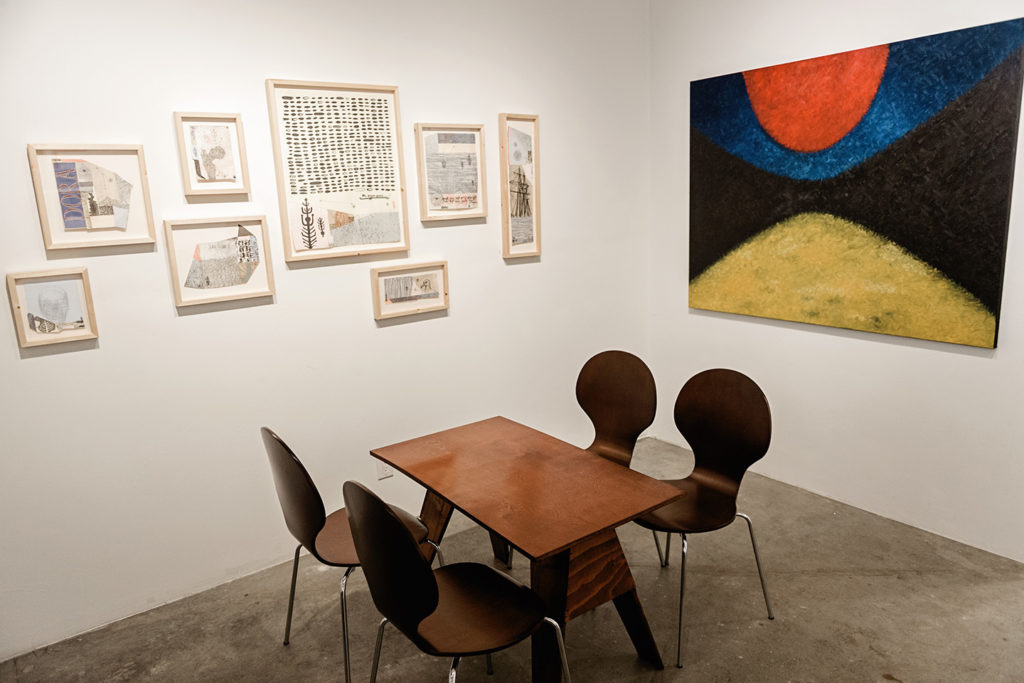
While some, like Sakurai, come with business plans in mind, others move to Hawai‘i for the lifestyle, then later decide to open a business. Nori Sakamoto arrived in Honolulu sight unseen 15 years ago with a surfboard in hand and a plan to pursue his joint passions: cooking and perfect, glassy waves.
He worked for years as the manager of a small Waikīkī musubi market before debuting the popular plate lunch restaurant Pioneer Saloon, and then the coffee shop and art gallery Ars Cafe, both of which are located on Monsarrat Avenue, a Diamond Head street that abounds with Japanese-owned ventures. Sakamoto says he earns enough money to get by, but he longs to be able to offer higher pay for his workers.
In an attempt to do just that, Sakamoto is opening a second Pioneer Saloon at Salt, a new mixed-use space in Kaka‘ako. Sakamoto says he expects to pay about $5,000 in monthly rent for 8,000 square feet, and he’s banking that Salt’s prime Kaka‘ako location will drum up more business than he’s able to catch at his current site.
In a measure to help offset the cost of launching the new location, Sakamoto says he will don an apron himself and work in the kitchen when the restaurant opens. “I like it here,” Sakamoto says, citing the island’s favorable weather and warm waters. “This is my last gamble before I retire.”
The risk looks to have been worth it for Otani. “At the end of the day, it’s a point of pride to say that we have expanded to Hawai‘i,” he says. “For Japanese people, anything that comes from Hawai‘i has extra value.”
OTHER NOTABLE JAPANESE-OWNED SMALL BUSINESSES:
James After Beach Club was opened in 2014 by Shioya Masayoshi, who owns a restaurant in Niigata and a clothing shop in Kamakura, and Hashimoto Junji, who worked for more than two decades as a manager of a lounge in Niigata. The shop carries a well-curated, casual collection of surf apparel and accessories.
Goofy Cafe, named after the right-foot-forward surfing stance rather than the Disney character, is owned by Zetton Inc., which also operates Aloha Table in Waikīkī. Opened in 2014 at the entrance to the south shore surfspot known as Bowls, the café focuses on using locally sourced, organic ingredients in its breakfast, lunch, and dinner offerings.
Yakitori Hachibei opened its first United States location in Chinatown, Honolulu in January 2017. Originating in Hakata in 1983, this yakitori restaurant prepares its meats and proteins with a spritz of sake and a sprinkling of salt, before grilling them over hot charcoals.




